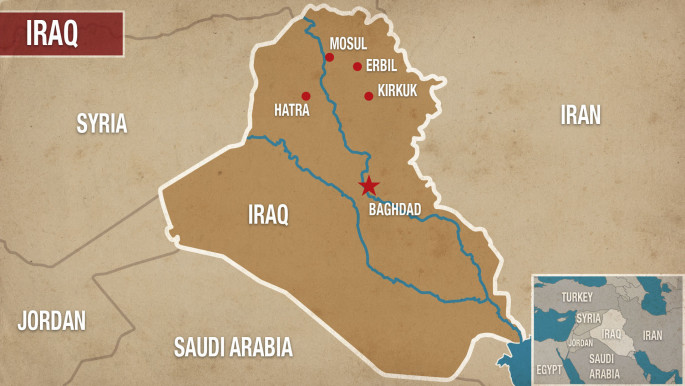Iraq forces launch offensive on IS holdouts in Mosul
Iraqi forces have launched a broad assault on parts of battleground second city Mosul still held by the Islamic State group, the military announced on Saturday.
The offensive is the latest push in the more than seven-month battle to retake Mosul, a lynchpin in IS' now crumbling bid to establish a cross-border jihadi "state".
Multiple security forces units are attacking "what remains of the un-liberated areas" on the west bank of the River Tigris, the Joint Operations Command said in a statement.
"Army forces attacked al-Shifaa neighbourhood and the Republican Hospital, federal police forces al-Zinjili neighbourhood, and counter-terrorism forces attacked al-Saha al-Oula neighbourhood," it said.
All three neighbourhoods are located north of the Old City, a warren of closely spaced buildings and narrow streets that has posed significant challenges to Iraqi forces seeking to oust IS.
On Friday, the federal police said they had bombarded IS positions with Grad rockets and field artillery in "preparation for attacking the Old City in the coming hours".
But the Joint Operations Command did not mention any attack on IS-held areas of the Old City on Saturday.
An Iraqi military, source speaking on condition of anonymity, told The New Arab that the attack on the Old City stopped two days ago, without any justification from the Joint Operations Command.
"The attack drained the federal police forces and subjected them to continuous counter attacks by IS in the southern parts of the Old City," he said.
Federal police officer Mohamed Aboud told The New Arab that among the reasons behind pausing the advance on the Old City was the change in military plans due to the nature of the area and IS tactics against security forces.
"Another reason is the presence of thousands of civilians under siege," he said. "We hope to help them exit via safe corridors created by the federal police."
Earlier this week, the military said it had dropped "hundreds of thousands of leaflets" on IS-held areas of Mosul urging "citizens to exit via safe corridors towards security forces".
Dangers to civilians
International aid group Save the Children expressed concern that the call for civilians to leave could expose them to additional danger.
"The Iraqi government must ensure all exit corridors are genuinely safe for people to flee," it said.
"The call for civilians to leave their homes is a U-turn on former directives that compelled civilians to stay and wait for the battle to pass" - instructions that also raised concerns about the risks.
IS overran large areas north and west of Baghdad in 2014, but Iraqi forces backed by US-led air strikes have since regained much of the territory they lost to the jihadis.
 |
| [Click to enlarge] |
Iraqi forces launched a major operation to retake Mosul in October last year, fighting their way to the city and retaking its eastern side before setting their sights on its smaller but more densely populated west.
The battle has taken a heavy toll on civilians, pushing hundreds of thousands to flee, while hundreds more have been killed or wounded.
On Thursday, the US announced the results of an investigation into a deadly coalition air strike earlier this year.
The probe found that at least 105 civilians had been killed and 36 remained unaccounted for, but said most had been killed by the secondary explosion of IS munitions stored in a nearby house.
There have also been reports that members of an Iraqi interior ministry special forces unit tortured and killed detainees during the Mosul operation.
Iraqi photographer Ali Arkady recounted witnessing the abuse, which he also filmed, in an article for German magazine Der Spiegel. US network ABC News too reported on Arkady's footage.
The interior ministry has launched an investigation into the allegations.
Abuses such as those described in the reports could sow the seeds of future conflict even as security forces near the end of the battle for Mosul, IS' most emblematic stronghold.Agencies contributed to this report.
![Iraqi forces in Mosul [AFP] Iraqi forces in Mosul [AFP]](/sites/default/files/styles/image_345x195/public/media/images/3E038CC4-69C5-49F1-9FA3-7CA31E66C0AD.jpg?h=d1cb525d&itok=Zlv_fuLM)




 Follow the Middle East's top stories in English at The New Arab on Google News
Follow the Middle East's top stories in English at The New Arab on Google News


![22 Arab countries at COP29 have rejected the targeting of fossil fuels [Getty]](/sites/default/files/styles/image_330x185/public/2024-11/GettyImages-2184289638.jpg?h=199d8c1f&itok=ptHl5bec)